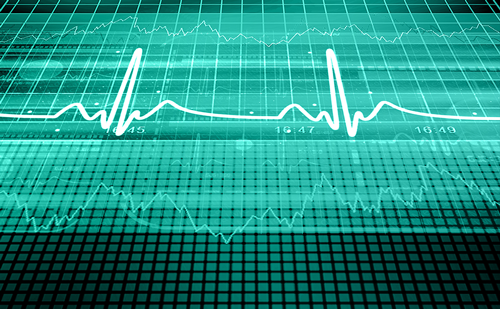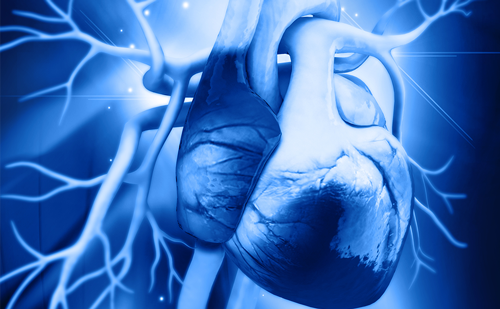Introduction: Atrial fibrillation (AF) is the most common cardiac arrhythmia. Estimated prevalence in England is 2.5% and increases with age. It is associated with a five-fold increase in stroke risk. Anticoagulation can reduce this risk by 64%.1 Guidelines recommend anticoagulation for patients with paroxysmal or persistent AF who are at risk of stroke. The National Institute for Health and Care Excellence recommends risk calculation using the CHA2DS2-VASc score and consideration of anticoagulation for the presence of a risk factor other than sex.
Routine cardiac implantable electronic device (CIED) follow-ups can determine the frequency and duration of atrial high-rate episodes (AHRE), which independently carry a stroke risk and are frequently due to AF. AHRE could represent subclinical AF and are associated with increased risk of future clinical AF. A high burden at diagnosis correlates with a greater incidence of progression of disease over 6 months.1 The precise duration of AHRE requiring anticoagulation is unclear and is unlikely to be a simple function of duration. However, durations of 6 minutes are associated with increased stroke risk. European Society of Cardiology guidelines suggest considering anticoagulation in high-risk patients with AHRE over 1 hour.
Our local physiologist-led protocols state that when a CIED check reveals episodes of AHRE consistent with AF lasting longer than 6 minutes, the general practitioner (GP) is contacted to suggest they consider anticoagulation.
Methods: A retrospective analysis of trust patients who underwent a CIED check between January 2021 and May 2022 was performed to assess GP response to letter receipt. All patients with AHRE over 6 minutes and their GP notified were included (n=42). CIED interrogation results and electronic records were analysed for AHRE duration, CHA2DS2-VASc score, anticoagulation decision and the time until subsequent treatment. For those not anticoagulated, records were assessed for a reason why not.
Results: Of the patients studied, 88% had the notification acknowledged in their GP records; 76% were anticoagulated. These patients had a CHA2DS2-VASc score ranging from 1 to 8. Ten per cent were not anticoagulated due to anaemia, melaena, malignancy, falls risk, cognitive impairment and poor swallow. These patients had CHA2DS2-VASc scores of 3 to 7 and a relative contraindication or high ORBIT score recorded. Two per cent were lost to follow up, untreated, after GP acknowledgement of notification. The median delay in anticoagulation from GP notification was 23.5 days (IQR: 10.75–48.7). The duration of AHRE episodes ranged from 8 minutes to 21 days. Eighty-three per cent of patients had AHRE duration greater than 1 hour. There were no adverse AF-related outcomes identified in GP records in the time between identification of AHRE and treatment starting.
Discussion: The presence of AHRE in patients undergoing CIED interrogation carries a risk of stroke and predisposes them to future clinical AF. There is an adequate response by GPs to physiologist led alerts to AHRE, demonstrated by a high rate of prompt anticoagulant prescription. Further investigation into AHRE burden and stroke risk could contribute to clearer guidance on when to anticoagulate in patients with subclinical AF. ❑







